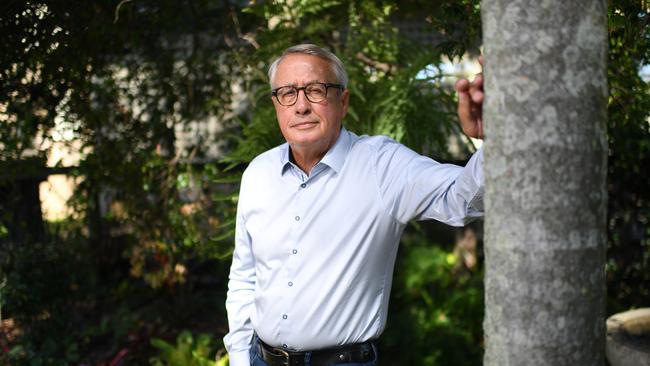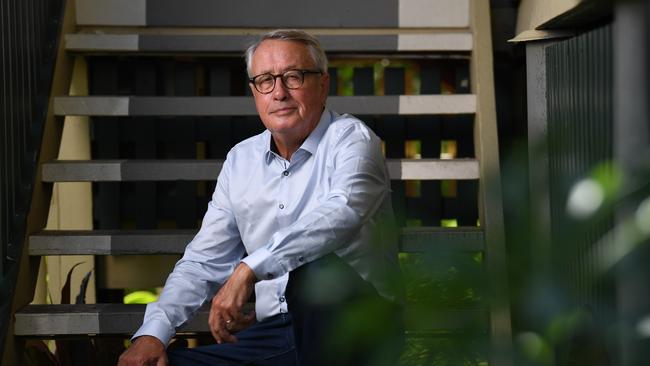Cbus rationalises Australian equities manager list, awards Magellan’s Airlie additional funds


With a confluence of negative factors at play, times are tough for many. Those factors include an increased number of industry super funds bringing the management of equities in-house, the rise of exchange-traded funds and passive investing, a shrinking financial planning industry and a wave of mergers among industry funds.
Industry super fund Cbus is the latest to have caused ripples in the sector. This column understands it has recently consolidated several equities mandates and handed as much as $1bn to an existing manager.
Sources said Magellan Financial Group’s Airlie Funds Management was the recipient of the additional money from Cbus, which is also in the spotlight due to its links to the embattled CFMEU.
Neither Cbus or Airlie would comment on Friday.
The Cbus decision put immense pressure on the fund managers that lost the money, particularly amid consolidation of the industry fund sector and continued downward pressure on fees.
It’s a solid win, however, for Airlie against fierce competition. Other fund managers also pitched their wares in an attempt to win the funds.
Magellan’s latest funds update showed it managed $5.4bn in Australian equities as at June 30, steady from the prior month, and up from $5.3bn in April.
It’s proven a challenging period for fund managers of Australian shares. As industry super funds merge that means fewer mandates will go to fund managers that oversee Australian equity strategies, particularly because most of the giants in the sector have created their own large teams to manage the money in-house.
Earlier this month, $300bn behemoth Australian Retirement Trust announced another merger, this time enveloping Qantas Super and adding 26,000 members and $9bn to its funds under management.
ART – itself the creation of the merger QSuper and Sunsuper – has participated in a deal frenzy and since the start of 2023 has snapped up AVSuper, Woolworths and Endeavour Group members, Commonwealth Bank Group Super, and Alcoa Super.
Many family offices are also managing money in-house rather than dishing out mandates to local funds managers.
Fewer mandates and fee compression are driving the shake-out in the funds management space. Just this month, Antipodes Partners agreed to purchase well-known firm Maple-Brown Abbott and boutique Ethical Partners Funds Management opted to wind-up its fund and return investors’ money. At its peak Ethical Partners managed more than $3bn, more recently that had declined to about $1.5bn.
First Sentier closed several funds and strategies earlier this year, to focus on more profitable areas. That followed a spate of mergers and acquisitions across the domestic funds management landscape on the past seven years.
Natixis bought a majority stake in Investors Mutual, Yarra Capital Management acquired Nikko Asset Management’s Australian business, Charter Hall took a 50 per cent stake in Paradice Investment Management, while Regal Partners has acquired firms including VGI and PM Capital.

Separately, Merlon Capital Partners and Fidante Partners have opted to part ways with the former’s investment team acquiring Fidante’s minority interest in the firm.
Merlon, which was established in 2010 and now manages $820m, initiated the transaction.
Fund managers canvassed by this column said earning a fee of 20 basis points on money managed for institutions was reasonably common, but the fee dropped below that for mandates of more than $1bn.
For managers that oversee money for retail – or mum and dad investors – the fees are fatter around the 90 to 100 basis point mark, but that declines substantially if the funds are coming via a larger wealth group.
Domestic fund managers are also having to navigate the exit of a spate of large companies from the ASX due to mergers and acquisitions and a dearth of initial public offerings. At the same time, their performance is being closely scrutinised given active managers are expected to beat their respective benchmarks.
One fund manager told this column: “You have to be in a very specific asset class they (industry super funds) can’t replicate.”
He also said the relative size of the Australian market, versus the US for example, exacerbated issues for domestic fund managers.
Some smaller super funds are also falling victim to unfavourable demographics as increasing numbers of their members enter the retirement phase, meaning inflows are curtailed.
Succession watch
Macquarie Group’s chairman Glenn Stevens played a straight bat late last week when asked about chief executive succession planning.
“The board has a regular process of considering succession planning, not just for the CEO but for the senior execs as well. It’s a routine thing we do and it continues,” he said on the sidelines of Macquarie’s annual general meeting on Thursday. “I’m not anticipating Shemara (Wikramanayake) is going anywhere anytime soon.”
There is a sense among some investors that calendar 2025 could see a changing of the guard at the helm of Macquarie. The topic of CEO succession at Macquarie this time round, however, is less clear, given the exit of commodities and global markets boss Nick O’Kane in late February.
Shareholders are keeping a close eye on Macquarie’s executive committee for any clues as to who the next CEO may be. Wikramanayake will have been in the top job for around seven years in 2025.
Separately, Macquarie’s asset management division on Friday exercised its option to buy the remaining 20 per cent in the United Kingdom’s National Gas, which owns and operates a national gas transmission system and maintains more than six million gas meters.
The deal is expected to complete by the first quarter 2025 and deliver a consortium led by Macquarie’s asset management arm 100 per cent ownership of National Gas.
The transaction comes despite fierce criticism of Macquarie’s ownership of Thames Water in the UK, which ended some seven years ago. Thames’ huge debt levels, leaks and the dumping of sewage have plagued the asset for years and this month it had some of its debt downgraded to junk status.



On the eve of profit reporting season, spare a thought for the under-pressure domestic funds management industry which is navigating a shake out.